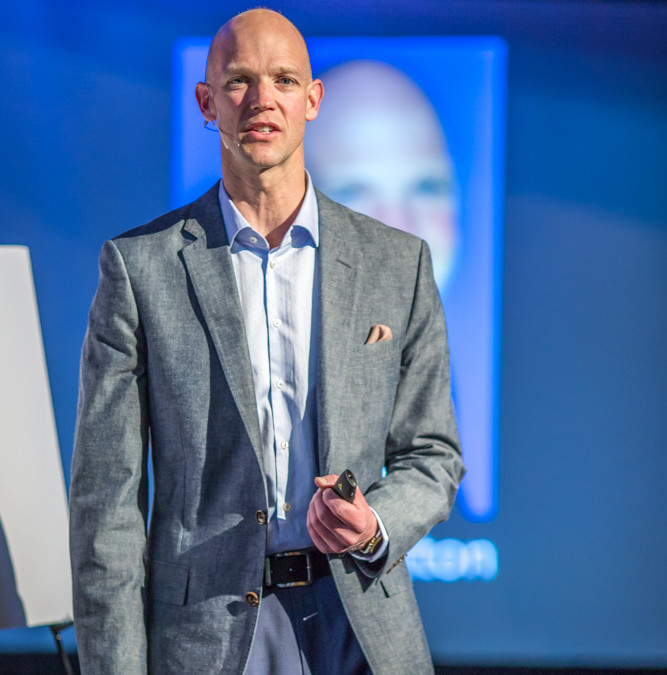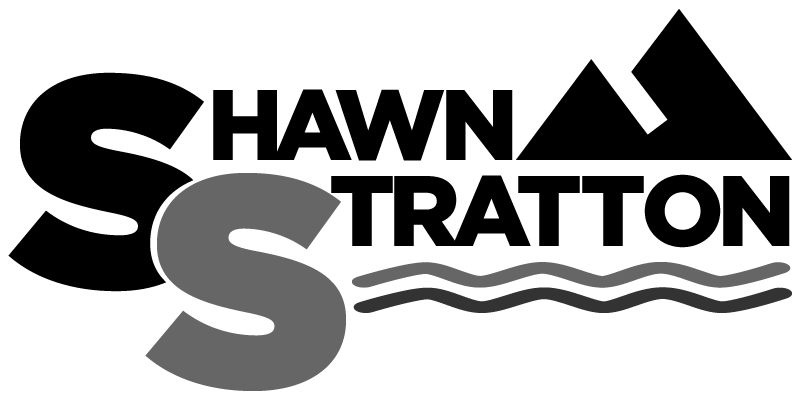
by Shawn Stratton | Aug 27, 2015 | Blog Posts
Before I get into this weeks post I wanted to update some of you on my quest to return to run the Boston Marathon. I mentioned in many presentations this spring that I would like to return to Boston and run the marathon with my wife. I managed to reach my qualifying time in the Vancouver Marathon in May so all we needed was for my wife Alexandra to attain her qualifying time at the Edmonton Marathon this past weekend. Well I am happy to report she did just that, running the race in 3:25, a full 10 minutes under her qualifying cut-off time!! Now we wait until mid September to see if our registration is accepted. As a leader, you are concerned about making a positive impact on the world around you. You may struggle with how to make the most significant impact while having a minimal effect on your top priorities and responsibilities. The good news is your community needs you! But how do you decide when, whom to give to, and in what way? When to Give: Don’t think about ‘when I should give’ but rather ‘how much I can give’ in both time and money. Charities and non-profit organizations need your help (usually) no matter how little you can give. So, I am always trying to give to causes in some capacity no matter how little I can give at the time. If you wait until the day you have significant excess free time or disposable money, you just may never give. In actual fact, giving can help you get these things sooner than most....

by Shawn Stratton | Aug 19, 2015 | Blog Posts
Summer vacation has continued over the last few weeks for me and the family. My time has been filled with camping, climbing, running, and playing in water. Here a few images from vacation time! With all this quality family time, I haven’t had a chance to give you my best in a blog this week so I wanted a share with you an interesting article on a communication technique from podcast host of the hugely successful Mixergy, Andrew Warner. At the end I share a missed opportunity to use his technique from earlier this week. Let me introduce you to the “Shoved Fact Technique.” by Andrew Warner, Founder, Mixergy You may never have noticed it, but inside every conversation, people are shoving clues at you and they’re DYING for you to ask about them. They WANT you to pick up these hints – but you you probably don’t even notice them. Once you learn how to pick up these clues, you’ll know how to ask the right questions and create space for real conversations. This technique works in any conversation, in any interview, and in any part of your life. It will help your sales and build your business. Ready? Here’s a real example from my life. See if you can spot the clues: At Thanksgiving a few years ago, my friend Jeff (not his real name) came into our house and said, “I’m sorry I’m late. Everything after a divorce takes twice as long. My daughter couldn’t find her jacket. And traffic in the Bay area is horrible” One of my other friends responded, “I know what you mean. It’s because of...

by Shawn Stratton | Aug 13, 2015 | Blog Posts
Do you struggle with when and how to delegate decision-making to your team? As a leader, there are times when you want your team to make the decision. There are many ways for the group to make their decision if their leaders would let them. Here’s a great article on a seven-step decision-making model from the University of Waterloo. Before you delegate decision–making, as a leader you need to ask yourself if you are you really ok with the decision they come up with. Have you influenced their decision-making using the data you provide, the tone and body language used in delivering that message, and the way the info is provided (in person, over email, individually)? If you are not transparent with all the information, you are not ready for the group to make the decision. I faced this challenge several times when leading expeditions. At times, I would present a few options to the group and want them to make the decision. In this case, it could be a decision on which route to take, what peak to climb, what class to have or what to eat. I would only do this for decisions I was willing to live with no matter what they decided. Several reasons I wanted the group to make the decision were to provide an opportunity for them to work as a team, give meaningful input, build confidence, increase there judgment and take ownership. When presenting options, I would often find it difficult to be fully transparent and neutral because I would usually prefer one decision to another. As noted above, this would come...

by Shawn Stratton | Aug 6, 2015 | Blog Posts
As a leader, you are doing things with groups of people, meetings, meals, events, travel, etc. The one thing these all have in common is that you are all gathering at a specific time and place. As the saying goes, ‘time is money’, but time is more than money. Time is freedom. The more discretionary time you have, the freer you are. In our overscheduled world, time is the most precious resource you have. Is this someone you meet with regularly that is consistently late? What does this say about their respect level for you? Don’t be last…. Every time. I first heard this expression many years ago when I did a short stint of tree planting in Northern Ontario while in University and I have used it ever since. Anytime you have a gathering of people, there has to be someone who shows up last (I guess you could have a tie). In my tree-planting example, time really was money and freedom. If you were late to get on the bus in the morning, you cut into the team’s working hours and a chance to make more money. In the evening, if you were late to the bus, you cut into people’s coveted free time back at camp. One of the best ways to lose respect from a team is to be consistently late to show up to gatherings. Showing up last or late once or twice is excusable in most circumstances, especially if you were able to give notice ahead of time. Showing up last consistently is a sign of disrespect, at least in North American culture....

by Shawn Stratton | Jul 30, 2015 | Blog Posts
Hi folks, I have just returned to Calgary from a fantastic two week vacation to Brazil for my brother’s wedding. I haven’t has a chance to finish my blog this week but I still wanted to send you some valuable content. This week’s blog features a 4:23 minute video clip from a recent presentation on building trust through vulnerability. In the video I share several tips on building trust fast. To get the complete list of 10 tips to Build Trust Fast click here and download your free copy. To view other clips from my presentations visit the video page on my website here. Until next week… Embrace the Adventure!...

by Shawn Stratton | Jul 23, 2015 | Blog Posts
Take a moment and pull out your keys and take a good long look at each key on the ring. Chances are there are a few that don’t need to be there anymore or perhaps there are one or two keys you don’t even know what they are for. It’s time to take them off your key ring and let them go! You have no need to be carrying around the extra bulky weight in your pocket or purse. They are just taking up space and slowing you down! Now, take a moment and think about your life: what useless emotional baggage are you hanging on to and is taking up valuable space in your brain? For the most part, this emotional baggage you have been hanging on to and is taking up valuable space in your head will serve no good to anyone? This emotional baggage may have been with you only a few months or has been hanging around for years, perhaps even from childhood. It could be something that was said or done to you or a missed opportunity, or failed attempt. Either way, it has stuck with you all this time and periodically jumps to the front of your thoughts, causing stress and negative feelings. In most cases, this baggage will never be resolved to satisfy your emotions. Some emotional baggage I have had to learn to let go over the years was the feeling of humiliation from being wronged. The feeling came once when at 23, I became involved with a jewelry scam while traveling in Thailand, almost costing me thousands of dollars. A...

by Shawn Stratton | Jul 16, 2015 | Blog Posts
What does legacy mean to you? Do you think about your legacy? Do you stress about it or is it something so far off in the distance it hasn’t entered you mind? Legacy has been defined as something you create during your life solely to benefit future generations, something you may never see come to fruition. As this definition shows, most people relate legacy with something that kicks in after you die. Well, I believe it is about making a positive impact on the world around you, dead or alive. Some people horde their time and money to have a “lasting” legacy after they pass on. I don’t see the point in this. Why not, as Debbie Allen says “live your legacy now” while you can have a greater impact on the world around you and even enjoy some of the fruits of your labor. People often donate money in their will and have ‘things’ named after them, be it a building in a university or a park bench, in the hope that their name will live on. I am sure they would also want their building and benches to be put to good use. The sad part is no one is going to remember them and all the good they did for the world other than their family and friends, even if their name is on a plaque. When was the last time you really stopped to read the dedication plaque inside the door of a building? Does the name of a building mean anything to you? People before Things In discussing why not to leave your legacy...

by Shawn Stratton | Jul 9, 2015 | Blog Posts
As a leader, you are a teacher, instructor, coach, and mentor among many other titles (hope this is not news to you). In this role, are you maximizing the learning opportunities for your ‘students’? Many times, when you are teaching, you are following a set curriculum or syllabus of information, be it from a policy and procedures manual a textbook or practical ‘on the job’ experience. You may be preparing a team member for a test or simply passing along the information needed to complete their role correctly. You typically have a plan in place to teach the material that needs to be covered in the best way possible. Deviate from the Plan There are often moments in the teaching and learning process when a unique learning opportunity is presented, potentially causing you to alter the schedule or information or technique you planned to follow for covering the material you are teaching. These moments usually show up in small nuggets of learning that are not directly related to the topic currently being taught but may offer a greater big picture learning or a real-life example of a topic to be taught at a later date. I call these opportunities “teachable moments”. Teachable Moments Teachable moments are typically presented experientially. They are usually unplanned events and present too great a learning opportunity to pass up. You may be teaching a new project manager about the budgeting process for a major project in your organization when there is an accident at a project site destroying an important piece of equipment and almost injuring 3 employees. You are not directly responsible for...

by Shawn Stratton | Jul 2, 2015 | Blog Posts
In grad school, as assignments and group projects would drag on, I would often say the “give a shit factor is starting to rise”, which means I am starting to care less and less about the project and the quality I am producing and I just want to get the project completed NOW. As you can imagine, that is not a good place to be when you pride yourself on producing quality work. This thought popped into my head the other day when reading the beautiful comments from my wife on my Father’s Day card. The question of why do we work so well together as a couple and parents came to mind and got me thinking about partnerships and teams. There are many reasons for successful partnerships and teams in general, but one of the main factors is the “care factor” of everyone involved. For teams to be successful, the leader needs to LOVE their team and find a way to have team members really care about their end goal and each other. Listen to any championship winning team’s coach. One of the first things they say is “I love these guys” when asked about their team. Their ‘give a shit’ factor is low. If, as a leader, you are not in love with your team, it will show and the sentiment will have a trickledown effect on the rest of the team. If you don’t care, why should they? Get Your Team to Care Role modeling a high care factor for your team is one part of having a caring group of team members but there is...

by Shawn Stratton | Jun 25, 2015 | Blog Posts
Think about the last time you were nervous about something you had control over. Now, think about something you were confident in that you had control over. It could be a race, an exam, an event you were leading, or a speech you were giving. The major difference in your feelings was because of your preparation. People often ask me if I get nervous before speaking engagements, be it to a large audience or workshops for high-powered executives, and my answer is always the same: “no, not if I am prepared”. In fact, the word I use to describe myself before a big engagement is excited, but that’s only if I am prepared. Too often people miss out on fantastic opportunities because of their lack of confidence in public speaking. It could be applying for a job, giving a sales presentation, presenting at a conference, teaching a course or leading a toast at a wedding. The fear of public speaking has been well documented and is often ranked as the thing we fear the most, even before death. As you can imagine, there is much more going on for people who experience fear of public speaking than just standing in front of a group of people and talking. Glenn Croston, the author of The Real Story of Risk, said the real fear about public speaking is based on our fear of rejection. This dates back to human evolution, as he discusses in his article published in Psychology Today, “The Thing We Fear More Than Death: Why Predators Are Responsible For Our Fear of Public Speaking” I too have the...

















